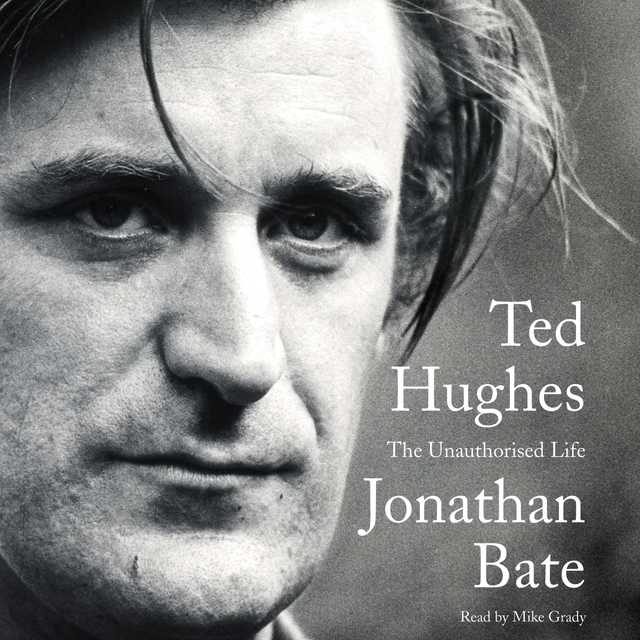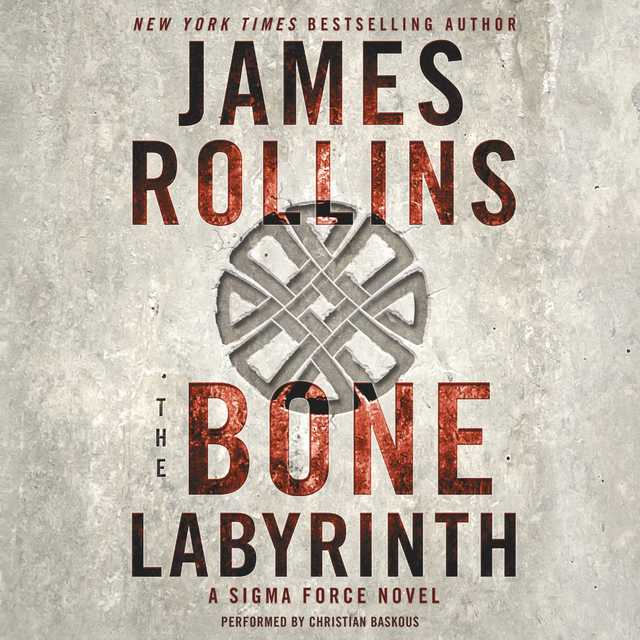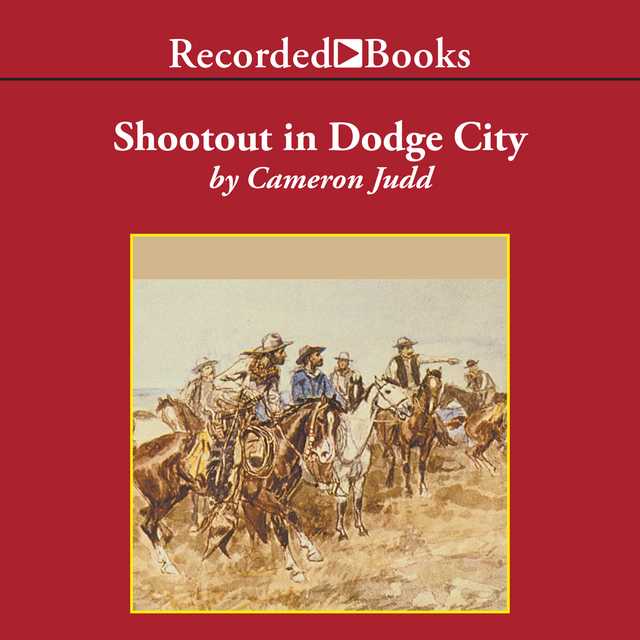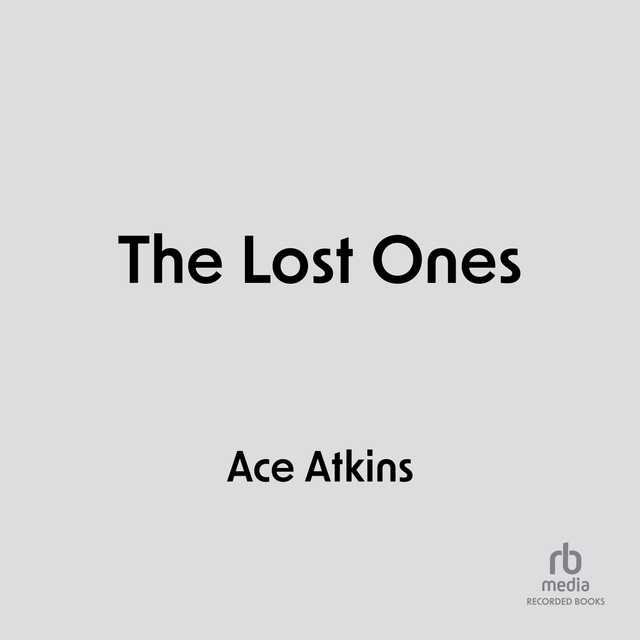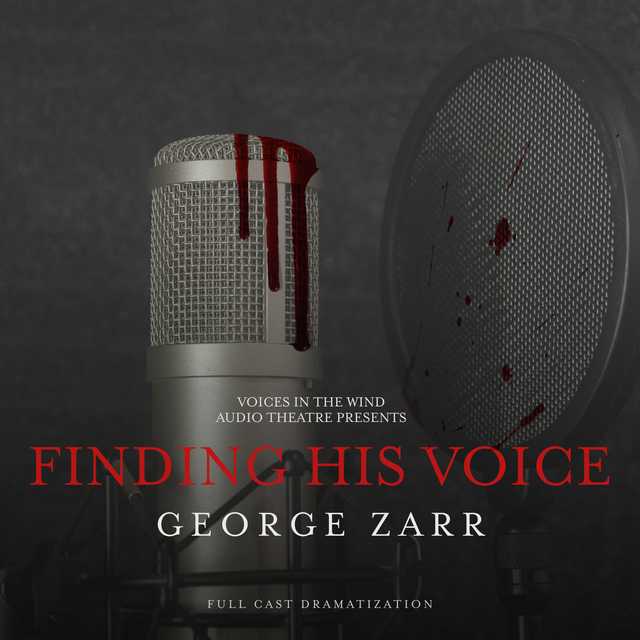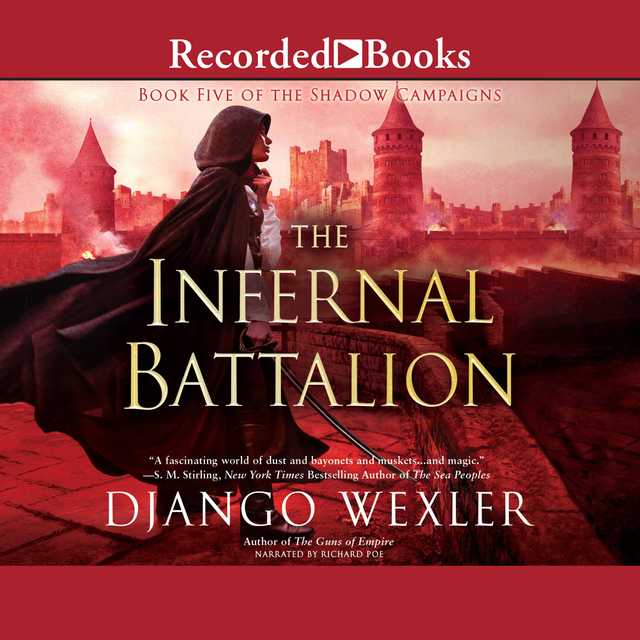Ted Hughes Audiobook Summary
Ted Hughes, Poet Laureate, was one of the greatest writers of the twentieth century. He was one of Britain’s most important poets, his work infused with myth; a love of nature, conservation, and ecology; of fishing and beasts in brooding landscapes.
With an equal gift for poetry and prose, and with a soul as capacious as any poet in history, he was also a prolific children’s writer and has been hailed as the greatest English letter-writer since John Keats. His magnetic personality and insatiable appetite for friendship, love, and life also attracted more scandal than any poet since Lord Byron. His lifelong quest to come to terms with the suicide of his first wife, Sylvia Plath, is the saddest and most infamous moment in the public history of modern poetry.
Hughes left behind a more complete archive of notes and journals than any other major poet, including thousands of pages of drafts, unpublished poems, and memorandum books that make up an almost complete record of Hughes’s inner life, which he preserved for posterity. Renowned scholar Jonathan Bate has spent five years in the Hughes archives, unearthing a wealth of new material. His book offers, for the first time, the full story of Hughes’s life as it was lived, remembered, and reshaped in his art. It is a book that honors, though not uncritically, Hughes’s poetry and the art of life-writing, approached by his biographer with an honesty answerable to Hughes’s own.
Other Top Audiobooks
Ted Hughes Audiobook Narrator
Mike Grady is the narrator of Ted Hughes audiobook that was written by Jonathan Bate
Jonathan Bate is a biographer, critic, and broadcaster. His many books include The Genius of Shakespeare, described by Sir Peter Hall as "the best modern book on Shakespeare"; a biography of the poet John Clare, which won Britain's two oldest literary awards, the Hawthornden Prize and the James Tait Black Prize; Soul of the Age, an intellectual life of Shakespeare, which was runner-up for the Biography Prize of PEN America; and The Song of the Earth, a pioneering book on poetry and the environment. He is also the author of a novel, The Cure for Love, and the hit one-man play for Simon Callow, Being Shakespeare. A fellow of both the British Academy and the Royal Society of Literature, he is provost of Worcester College and professor of English literature at Oxford University. Married to the author Paula Byrne, he was appointed Commander of the Order of the British Empire for his services to higher education and was knighted in 2015 for his services to literary scholarship.
About the Author(s) of Ted Hughes
Jonathan Bate is the author of Ted Hughes
More From the Same
- Author : Jonathan Bate
- Bright Star, Green Light
- Radical Wordsworth
- Publisher : HarperAudio
- Abraham
- American Gods [TV Tie-In]
- Dead Ringer
- House of Sand and Fog
- Prey
Ted Hughes Full Details
| Narrator | Mike Grady |
| Length | 25 hours 33 minutes |
| Author | Jonathan Bate |
| Category | |
| Publisher | HarperAudio |
| Release date | October 13, 2015 |
| ISBN | 9780062433855 |
Subjects
The publisher of the Ted Hughes is HarperAudio. includes the following subjects: The BISAC Subject Code is General, Literary Criticism
Additional info
The publisher of the Ted Hughes is HarperAudio. The imprint is HarperAudio. It is supplied by HarperAudio. The ISBN-13 is 9780062433855.
Global Availability
This book is only available in the United States.
Goodreads Reviews
Ryan
March 23, 2021
When Ted Hughes published Birthday Letters in 1998 it became the fastest selling work of poetry in history. Critics were astounded, readers old and young were converted, prizes were scooped. Comparisons were drawn with erupting volcanoes. There was a feeling of immense pressure forcing the poems upwards, outwards. These were poems that had to be written. The story of how that pressure gathered and why is the burden of this engaging biography.Though not the first biography of Ted Hughes, it is the most detailed. The journey it traces from Number 1 Aspinall Street, Mytholmroyd to Buckingham Palace is remarkable. Like his close friend Seamus Heaney, Ted Hughes' parents were neither wealthy nor highly educated and lived far from the centres of power. Nearly all their street's houses were made of millstone grit, stained by over a century of industry. A tin bath was stored under the kitchen table for washing. There were compensations. Hughes' Mother Edith was something of a mystic, complaining since childhood of spectral hands touching her own. In June 1944 she woke to the sight of crosses flashing in the sky above the local chapel, alerting her to a terrible battle being fought in which thousands were being killed. The following day the radio announced the D-day landings had begun that morning. Little Hughes loved animals made of lead and the outdoors, thrilling to ‘the silence of the hills’, the untamed Yorkshire moors and its wildlife. Early hunting expeditions did not always run smoothly. After borrowing his brother’s air rifle, a shot by Ted ricocheted, bloodying his forehead. Fishing trips went better when the boys trawled the canal using old curtains for nets. Hughes' favourite childhood book seems to have been Tarka the Otter. Unsentimental and frequently violent, the book refused to cast animals as mere human stand-ins. When Hughes read it, it hit him with the force of revelation.Hughes' flair for writing and reading saw him through Grammar School and later to Cambridge. Much of what he learned was an elaboration of his early reading: bits and pieces of Jung, D.H. Lawrence, large chunks of Robert Graves’ The White Goddess. Hughes switched from studying English to anthropology after his famous dream of seeing a human-sized fox enter his room, burnt and remorseful, telling the budding writer ‘You’re killing us’. This provoked his signature poem ‘The Thought-Fox’ and the rest, you might think, is history. Bate doesn’t have a historian’s vice of spotting inevitability around every corner. Whatever Hughes claimed in later years, the poem, in fact, was not written until years after leaving university and was repeatedly revised. To readers that can barely imagine a world before the poem existed, the messy process of how it arrived is interesting reading. The famed last line ‘The window is starless still; the clock ticks, / The page is printed' went through many variants, such as ‘And the page where the prints have appeared’ and ‘The clock crowding and the whitening sky / Watch this page where the prints remain.’ It's a fine example of the book’s fascination with how easily history might have taken a different course, the countless fords in the river of time.Also different was Hughes’ approach to poetry. At the time, the ‘Movement’ poets were in vogue. Hughes style, as Seamus Heaney put it, with its ‘sensuous fetch, its redolence of blood and gland and grass and water, recalled English poetry in the fifties from a too suburban evasion [...] his diction is consonantal, and it snicks through the air like an efficient blade, making and carving out fast definite shapes; but within those shapes, mysteries and rituals are hinted at. They are circles within which he conjures up presence.’ You long for a second volume of Hughes' correspondence, filled solely with letters between the two.The ritual, shamanistic aspect of poetry certainly appealed to Hughes. Though it's a mark of how seriously Hughes took his role as poet, Bate seems to imply that it also papered over his glaring lack of responsibility, especially when it came to sex. Hughes had a reputation as a seducer and Bate makes no attempt to excuse it. Hughes’ affair with Assia Wevill is well known, but less so were the dalliances he was enjoying well into his sixties. There are hints of even further affairs, including a possible tryst with Angela Carter. The feminist writer Erica Jong (she who coined the phrase ‘zipless fuck’) and her attraction to Hughes is weirdly fascinating. We learn that Hughes was in bed with another woman at roughly the same time Sylvia Plath was placing her head in the gas oven. This is the point that most biographies have already covered, often to the exclusion of everything else. Bate is careful to give this event its full measure, but also careful to place it into context and with some sobering details. To the fledgeling feminist movement, Plath served as a ready-made victim and martyr. Hughes was swiftly caricatured as a violent, profiteering tyrant. It was a crude view, hence its reliance on strict binary opposites, on black and white. Although Plath’s Journals and Letters Home helped bring some shades of grey into that view, her more hysterical fans had little time for facts. Bate politely terms them ‘Plathians’, though I find ‘Plath cultists’ more apposite. Hughes’ actions were ugly and selfish, but he never defaced another person’s grave or wrote poems demanding someone’s dismemberment. We also learn that when The Bell Jar appeared in America, it was prompted by an oddity of US copyright law. Work by a deceased American citizen published outside their own country forfeits protection after seven years. This meant that any publisher could bring the novel out without paying a cent in royalties. As the money from Plath’s estate was paid into a Trust for her two children, less the price of a modest family house, Hughes sensibly opted to release an official edition. Accusations of profiteering duly ensued. Protests at Hughes’ readings grew more frenzied and vicious.There were other difficulties. After Crow in 1970, even devoted fans could spot the decline in quality. Bate serves up some astute criticism and quotes many examples of Hughes at his most overblown and pretentious: ('Oracular spore-breath’, ‘goblin clump’, ‘ectoplasmic pulp’, ‘half a drugged Oglala’. ) Hughes’ voice, as Bate puts it, became a ‘parody self', a rehash of the worst of Crow without the directness and clarity of its best. Official recognition didn't help. 'Rain-Charm for the Duchy' aside, Hughes’ laureate poetry was awful.What broke the deadlock? Hughes was dismissive of ‘confessional’ poetry but had learned more than he was willing to admit from Plath. Yet the Birthday Letters poems addressed to his wife's shade didn’t arrive as a late shower of creativity: they were written over thirty years. Some appeared in the 1981 and 1994 editions of Hughes' Selected Poems without comment. Besides their emotional richness, they seemed to most as altogether different from Hughes’ other work. In fact, as Erica Wagner says in Ariel’s Gift, the style of the book had more in common with Hughes’ superb 1979 collection Moortown Diary - looser, dialogic, more willing to risk feeling. Not all the Sylvia poems made the cut, and not all saw publication even in limited editions afterwards. Perhaps one day that will be rectified, but I think Bate is right when he says that releasing the burden of grief helped Hughes in more ways than one. Bate also unearths some interesting finds. Plath attended the Lady Chatterley Trial at the Old Bailey, and named her role models as Brigit Bardot and Lolita, in apparent seriousness. Although Hughes sister Olwyn wrote scathingly about Plath, she barely knew her in real life. The Vicar that baptised Hughes and Plath’s children preached a sermon heralding the H-bomb as a sign of the Second Coming, attacking 'the stupid pacifists and humanists’ that feared incineration. When Plath submitted the manuscript of Hughes’ first book The Hawk in the Rain, Faber returned it with the acid comment that they didn’t publish first books by unknown US authors. After Plath pointed out Hughes was an Englishman, an acceptance letter and a glowing note of praise from T.S. Eliot immediately followed.Although Hughes worshipped Eliot’s work, he found the senior poet distant, always looking down to the ground when talking, and smiling like ‘a person recovering from some serious operation’. Hughes’ comments about American poets still seem accurate over fifty years later: their only real grounding was their selves and their family, ‘Never a locality, or a community, or an organisation of ideas, or a private imagination.’I have some gripes. I doubt many will agree that Hughes was one of the great Poet Laureates. I don’t think hypnotism performed by amateurs helps much with the agony of childbirth. Oxford isn’t in ‘the North’; nor is Nottingham. I don’t see why readers that disliked Shakespeare and the Goddess of Complete Being actually should ‘atone’ for that opinion, or why Bate thinks they should.These flaws aside, this is an engaging, level-headed biography, fair to its subject, and with a proper respect for the human suffering it probes. Seamus Heaney compared reading Birthday Letters to a ‘tribute paid / By what we have been true to. A thing allowed.’ Bate has been true to Hughes.
Nicola
November 01, 2015
I have just finished this book in the last twenty minutes or so and am still in the throes of reading it. This was a glorious read for many reasons but perhaps the most important one is that it has given me a brand new and utterly rounded account of Ted Hughes as a poet, father, lover and husband.I have never read his poetry and only knew him as the dubious Mr Sylvia Plath who presumably was the cause of her suicide. Then I learned his second wife went the same way but this time involving their four year old daughter in her own version of Plath's suicide. Based on assorted scandalous tit bits - that I knew little about - I joined the legions of ("feminist") women in believing he must surely be some kind of monster.This is not true though it is not simply a case of stating the opposite. Most women - I think - have known "a" Ted Hughes and even loved "a" Ted Hughes.Apart from all this, his many, many women and flamboyant sexual appetite, this is an incredible and electrifying account of the life of a writer ... a man who constantly stove to learn and dissect, write and rewrite - and rewrite once more.I cannot recommend it highly enough in this regard. I will confess that I did not always followed the intense analysis on offer, of Hughes poetry and plays, (I know feck all about poetry) but it did not take away from my enjoyment of this biography. Thanks to Bate, I am now going to start a biography of Wordsworth, a book that has sat on my shelves for well over a decade. And I will definitely be getting myself a copy of Hughes's 'Birthday Letters'. This is surely the power of a bloody good biography - to send the reader on an unexpected journey in the aftermath of turning the last page.
John
May 22, 2017
Although I did not have this book on my list here, I did purchase it several months back and completed it this weekend. First off -- any book by Jonathan Bate, in my experience, is an excellent experience. I can recommend his two biographies of Shakespeare, one on John Clare, and another favorite of mine that he edited called Stressed, Unstressed (a book of poetry for help in life).Hughes is a great poet with a very complicated life. I won't say tragic life, although there were tragedies that have been well written of. Bate brings a nice balance to the story, thoroughly researched, well-written, non-judgmental. If the poet Ted Hughes interests you, then this biography should as well. It seems to be that someone like Bate, a scholar from England who has written extensively about literature, was the right writer for this story. What I liked about this book is it also provides a good grounding in and explication of the poetry. There has to be some of that; otherwise a biography of a poet like Hughes would only half work.If a book piques a person's interest after a reading, they go back to it, for either more details, more questions answered, or just the pleasure of another look. I plan to with this one.
Helen
February 18, 2019
I feel slightly guilty filing this on my 'Sylvia Plath' shelf, but having read this brilliant biography, I feel somewhat justified. I've admired Bate's writing on Shakespeare and related subjects, and he's done a masterly job of writing about Ted Hughes - a great poet who wrote a lot of bad poetry and a man with more than his fair share of flaws - in a manner that is neither hagiographical nor spiteful. Plath runs through the book like blood through a vein. I think this is right. I agree with Bate that Plath was the ghost who never left him, the Cathy to his Heathcliff. There were many times when I disliked the man drawn by Bate, but also times when I pitied him and even came close to understanding him. Any biography is, of course, as much about the biographer as it is about his/her subject. No one can be entirely objective even if they try. Bate admits as much. He shows us the power of Ted's writing, and also its weaknesses. Deeply flawed, deeply talented, his life and writing - taken as a whole - never quite delivered as much or as well as he wished. He was often very generous to other poets, and his slight envy when his good friend Seamus Heaney won the Nobel is understandable (although I feel Heaney was a better and more consistent poet than Hughes).What shines through above everything is the respect he felt for Plath's work. In many respects he let her down badly, but in his appreciation of what she achieved in her late poems, he never wavered.I've always struggled to find a way in to Hughes's poetry. This biography makes me want his read his work again. That's what all the best biographies do.
James
January 21, 2016
Great poets like Ted Hughes deserve great biographies. This is a very good one, if not great. The qualifier seems necessary because there were limitations placed on the biographer Jonathan Bate. The first to be given access to the huge archive of Hughes's unpublished writings, permission was later revoked by the widow, Carol Hughes, ostensibly because he was uncovering too much of the libertine and not enough of the literary. Hughes famously--or infamously--was a womanizer and had many affairs, some with writers whose names are well-known and some whose names can only be hinted at. Bate provides enough detail to satisfy the voyeur in us while at the same time, being an intelligent critic, gives us a full and fascinating portrait of the poet and his work.Hughes, as we all know, was the husband of the suicidal poet Sylvia Plath. Their marriage was one of the most interesting unions and collaborations in literary history. Hughes's love for her and his loss of her were the defining events of his life. Bate isn't able to add much to a story already so well known. It's all covered by him rather quickly considering the importance of those years to Hughes and their impact on the poetry to follow. Still, there's much story left, many sides to Ted Hughes--outdoorsman, eco-warrior, Poet Laureate, Shakespearian scholar, expert on myth and the shamanistic--and the biography makes a full man of him.If this isn't the biography Bate wanted to write, it's still an excellent one. I doubt there will be a better one until Carol is gone.
Ruth
October 19, 2015
Outstanding!
Ophelinha
July 05, 2018
A touching, extraordinarily well written biography. A must read for Plath lovers hellbent on discovering the other side of her moon - impossibly charming, prolific, complicated dark knight Ted Hughes.
Amber
January 14, 2019
Good to read, but I still have a low opinion of him personally. More of a gathering of information from the Plath side.
Lori Tatar
November 21, 2015
Ted Hughes: The Unauthorised Life by Jonathan Bate is an insightful and candid tome that reveals the subject's relationship with his wife, Sylvia Plath, author of "The Bell Jar", among other works, and the profound effects of her suicide on him, in many ways. It is a celebration of his life and work, but is also somewhat sad and depressing. When reading, expect to get a greater sense of the profound darkness that haunted Mr. Hughes after his wife's death. He survived and even thrived in many ways but the suicide was always with him. I recommend this biography for anyone who is a Ted Hughes or a Sylvia Plath fan, and especially fans of Jonathan Bate, the author. Thanks, Goodreads!
Lisa
May 21, 2016
As a long time Plath obsessive, this was a book I had to read. Previously my knowledge of Hughes was pretty much limited to his relationship with her, and this excellent unauthorized biography greatly expanded that. The author's critical reading of Hughes' work is very insightful; I found the comparisons with Wordsworth to be especially interesting. Ultimately the impression I had of Hughes is that his life was forever linked to and overshadowed by Plath's; their brief marriage the core of his existence. A detailed and believable portrait of a complex and fascinating man.
Lisa
January 03, 2016
There are many things that are impressive about this biography, but above all, it is absolutely beautifully written. Never a word of out place. Jonathan Bate does not judge Ted Hughes. He explains a very tragic and complicated personal and creative life with consummate skill and a singular lack of moral or social judgement.
Louise
December 01, 2015
I am lost for words. Lost in thought. Still digesting this majestic read. In one word 'Sublime'When I go back and remember Dec. 1st 2015 I will always remember reluctantly returning this elgant book back to my local library. I now am off to buy a copy.
Joan
November 30, 2015
An authoritative biography that gives equal weight to Hughes personal life and his literary achievements. Intelligent and thoughtful, Bate addresses controversial issues and corrects many misapprehensions.
Frequently asked questions
Listening to audiobooks not only easy, it is also very convenient. You can listen to audiobooks on almost every device. From your laptop to your smart phone or even a smart speaker like Apple HomePod or even Alexa. Here’s how you can get started listening to audiobooks.
- 1. Download your favorite audiobook app such as Speechify.
- 2. Sign up for an account.
- 3. Browse the library for the best audiobooks and select the first one for free
- 4. Download the audiobook file to your device
- 5. Open the Speechify audiobook app and select the audiobook you want to listen to.
- 6. Adjust the playback speed and other settings to your preference.
- 7. Press play and enjoy!
While you can listen to the bestsellers on almost any device, and preferences may vary, generally smart phones are offer the most convenience factor. You could be working out, grocery shopping, or even watching your dog in the dog park on a Saturday morning.
However, most audiobook apps work across multiple devices so you can pick up that riveting new Stephen King book you started at the dog park, back on your laptop when you get back home.
Speechify is one of the best apps for audiobooks. The pricing structure is the most competitive in the market and the app is easy to use. It features the best sellers and award winning authors. Listen to your favorite books or discover new ones and listen to real voice actors read to you. Getting started is easy, the first book is free.
Research showcasing the brain health benefits of reading on a regular basis is wide-ranging and undeniable. However, research comparing the benefits of reading vs listening is much more sparse. According to professor of psychology and author Dr. Kristen Willeumier, though, there is good reason to believe that the reading experience provided by audiobooks offers many of the same brain benefits as reading a physical book.
Audiobooks are recordings of books that are read aloud by a professional voice actor. The recordings are typically available for purchase and download in digital formats such as MP3, WMA, or AAC. They can also be streamed from online services like Speechify, Audible, AppleBooks, or Spotify.
You simply download the app onto your smart phone, create your account, and in Speechify, you can choose your first book, from our vast library of best-sellers and classics, to read for free.
Audiobooks, like real books can add up over time. Here’s where you can listen to audiobooks for free. Speechify let’s you read your first best seller for free. Apart from that, we have a vast selection of free audiobooks that you can enjoy. Get the same rich experience no matter if the book was free or not.
It depends. Yes, there are free audiobooks and paid audiobooks. Speechify offers a blend of both!
It varies. The easiest way depends on a few things. The app and service you use, which device, and platform. Speechify is the easiest way to listen to audiobooks. Downloading the app is quick. It is not a large app and does not eat up space on your iPhone or Android device.
Listening to audiobooks on your smart phone, with Speechify, is the easiest way to listen to audiobooks.

